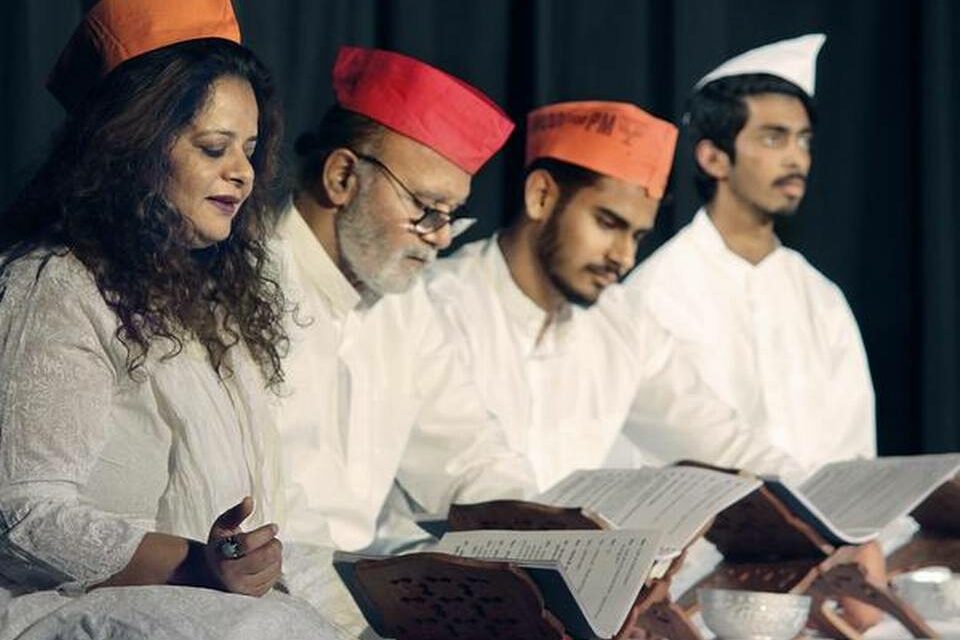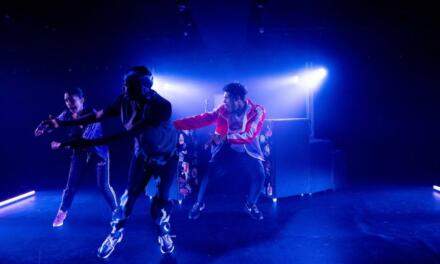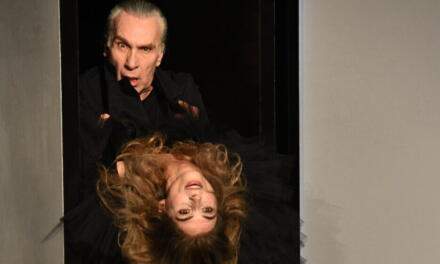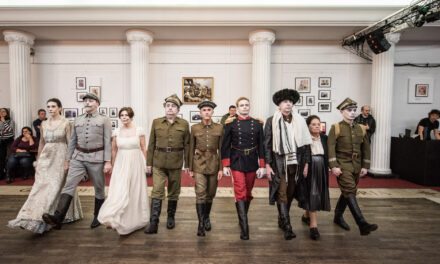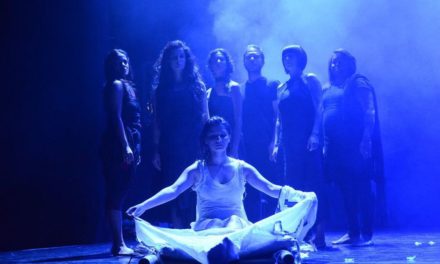Director Tarique Hameed on why Dastaan Narration Form is the best way to narrate the story of Topi Ki Dastaan
To celebrate their tenth anniversary, Delhi-based Wings Cultural Society will stage Topi Ki Dastaan, a play based on the popular Hindi novel Topi Shukla, in Hyderabad. The play written in the early 60s by Rahi Masoom Raza, has been adapted in a unique “Dastaan Narration Form.”
Twelve years of experience in theatre, Tarique Hameed takes an unconventional approach towards Topi Shukla.
“’Dastaan Narration Form’ or ‘narrative form,’ draws inspiration from the Dastaangoi style, that originated in pre-Islamic Arabia in the 13th Century and was extremely popular among the elite and commoners of Delhi and Lucknow. As an actor and director, I wanted to stage the play in the Dastaangoi style, however, when I started reading the play, I realized the format won’t work as there are too many characters involved. But I still needed to find a new way to stage the play and maintain the narrative form,” says Tarique.
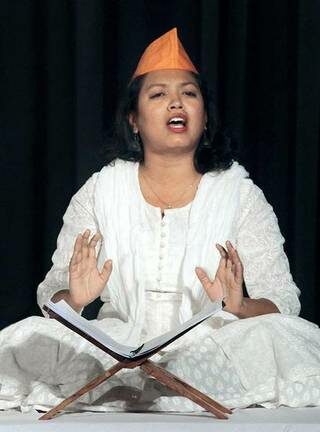
Photo from the original article
His passion for performing arts gave him the best exposure in theatre. As an actor, he attributes his knowledge of theatre to “institutions” such as Salima Raza, Amal Allana, Banwari Taneja, Danish Iqbal, H S Shivaprakash, Samkutty Pattomkary, Soumyabrata Choudhury, KS Rajendran, Dev Raj Ankur, Mushtak Kak, Suman Kumar, Ajay Kumar, and Anoop Trivedi.
After much planning and work, Tarique created a form called “Dastaan narration form,” for the lack of a better name on the format he chose to stage.
“It is an adaptation of the Dastaangoi style and the tweak being there are more people reading unlike the Dastaangoi art form of storytelling where only one or two people perform,” he said,
As he racked his brain to find an apt way to stage Topi Ki Dastaan, Tarique says, he remembered the rehal (foldable book rest used for placing holy books during recitation).
“Incidentally, I would always purchase beautiful rehals whenever I passed by Nizamuddin. Since I had a decent collection I decided to try a reading session with a group of six actors, who switched characters in the book through voice modulation. It worked out beautifully and ever since we have taken this play to most cities in India. This, however, will be our first performance in Hyderabad,” says Tarique.
Apart from theatre techniques and a nuanced understanding of various aspects of theatre and performance, Tarique is adept at set design, lighting, and direction.
Tarique assures us that if the audience closes their eyes and listen, they can vividly visualize the play unfold.
Through the story reading technique, the group recreates the turbulence between “Topi” and “Iffan,” the main characters, also childhood friends who have grown up in an independent cultural environment before the great divide that created the two nations.
“The entire scenario is created through dialogues in the truest format. This ‘Dastaan’ is an attempt to reinvent those feelings of fear and horror between the two main communities which were affected,” said Tarique.
The play, he said, revolves around Topi who is an embodiment of chaos in the post independent era. Dastaan highlights the circumstances of two nations existing within one nation. Topi, a Hindu by faith, questions the formation of Pakistan and mirrors the image of the mindset of his times, which also reflects the present day scenario.
Is the play relevant in present times?
“We are a secular nation and it is important to remind each one of us about peaceful co-existence. So yes, the play is relevant to the modern day society irrespective of age and the communities that we belong to.”
The play will be staged on May 12 at Apollo Foundation Theatre.
Tarique also conducts workshops for theatre enthusiasts and encourages them to be actively involved, as he believes the youth needs to invest more time in theatre because it enhances one’s understanding of self and society at large.
This article appeared in The Hindu on May 3, 2019, and has been reposted with permission.
This post was written by the author in their personal capacity.The opinions expressed in this article are the author’s own and do not reflect the view of The Theatre Times, their staff or collaborators.
This post was written by Prabalika M. Borah.
The views expressed here belong to the author and do not necessarily reflect our views and opinions.

